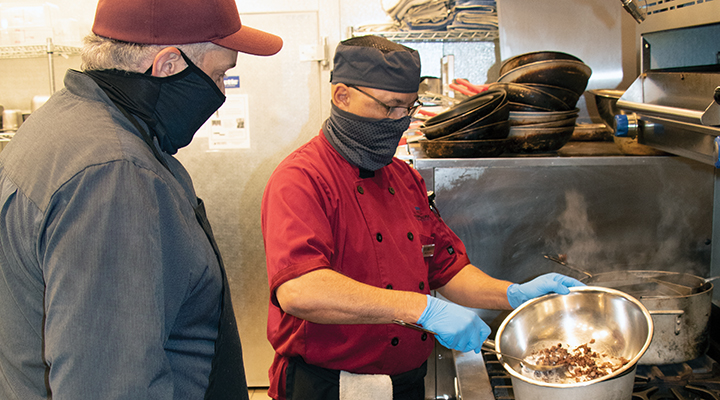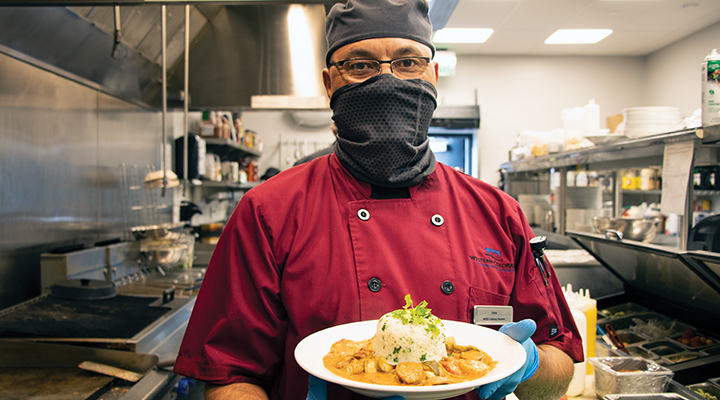One student returns to his roots
Some decades ago, in the city of Mayagüez on the western coast of Puerto Rico, a young Jose Velez sat plucking feathers from his grandmother’s chickens. From an early age, Velez would help prepare the meat used for family meals. He would watch his grandmother and his father cook local dishes like piononos — a savory, stuffed plantain. He gained an appreciation for cooking and that appreciation grew into a passion. At 18, he joined the military, built a family of his own, became a lieutenant colonel and moved around the world. A bachelor’s degree in nursing and two master’s degrees later, Velez finds himself back in the classroom and kitchen in order to get back to his roots.
What first attracted Velez to the two-year Western Colorado Community College Culinary Arts program, aside from his passion for food, was the unique curriculum and the opportunity to learn in a state-of-the-art commercial kitchen lab. Students also complete a practicum at Colorado Mesa University’s boutique hotel, Hotel Maverick, which serves as the only hospitality teaching facility in western Colorado. This gives students like Velez the chance to learn how a world-class restaurant, like Devil’s Kitchen, operates.

“It’s not like you’re just making a dish for a student or one of the other chefs, you’re serving actual customers and you need to meet their expectations,” said Velez.
He and the other WCCC students get a feel for being part of a real kitchen crew because they’re cooking dishes alongside them.
“I’m getting first-hand experience of what is happening in a real kitchen, in a real restaurant,” said Velez. “I’ll be 10 minutes into a recipe and then I get five more that come down the line, so I’m preparing all these dishes at once. It’s a fully immersive experience.”
Working in a busy kitchen can be stressful for even the most seasoned chefs, but the Devil’s Kitchen staff is there to help support students and nurture their professional growth.
“This program is great for a wide range of people. Whether they plan to stay on the Western Slope or if they head over to the Front Range, they have something on their resume that shows they’ve worked the line in a busy restaurant,” said Devil’s Kitchen Executive Chef Kenneth Kinser. “My job is to make them line cooks so they can take what they’ve learned and move on to the next level of their career.”
“Not many culinary or hospitality programs can provide this kind of opportunity to students,” said WCCC Assistant Technical Professor of Culinary Arts Wayne Smith, who sees the teaching hotel and the program’s competitive tuition as big draws for prospective students and their families. “We are already seeing the benefit of students working on a Friday or Saturday night serving 200–250 meals in a shift, keeping up their stocks of ingredients and sending out all those meals without a single plate coming back to the kitchen. There is a sense of accomplishment there that we could never replicate in our labs.”
For Velez, cooking is a creative outlet that he hopes he can share with his grandkids for years to come.
“Cooking a meal is like creating a piece of art, just like a painting. When people ask my grandkids who taught them how to cook, I want them to say, ‘My grandpa did.’”
From Puerto Rico to Grand Junction, Velez’ passion for food will continue to be shared with others.
